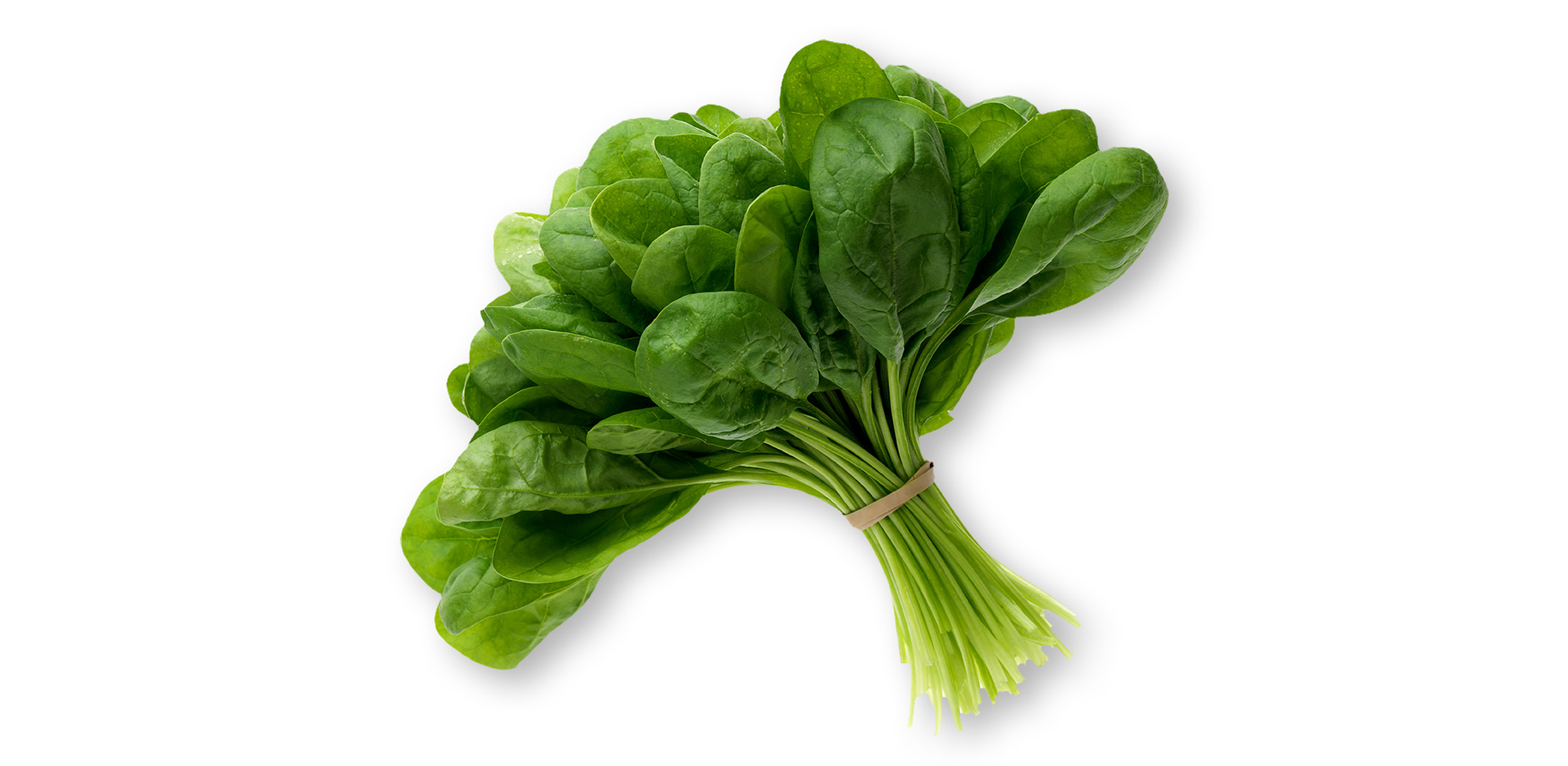Spinach Benefits and Nutrition Facts

What does spinach do to the body?
Spinach Benefits
Is spinach good for you? Short answer, yes!
Spinach is considered a nutrition powerhouse! When it comes to spinach nutrition there’s a whole lot to love about the humble spinach plant. Spinach is packed with essential nutrients but is very low in calories. Spinach has about five calories per one cup serving. It is also a good low carb option with just one gram of carbs in spinach per serving.
Eating spinach benefits the body in many ways. It is important for healthy hair, skin, eyes, bones, and much more! One of the main health benefits of spinach is that it is an excellent source of Vitamin K, meaning it provides 20 percent or more of the daily recommended value. In fact, one cup of spinach provides more than enough vitamin K with 120 percent of your daily value!
Vitamin K is necessary for normal blood clotting. It also improves calcium absorption and can even help reduce the amount of calcium that leaves the body in the form of urine. This makes spinach excellent for improving and maintaining bone health.
Spinach is also a good source of folate and vitamin A, meaning it provides at least 10 percent of the recommended daily value. One cup of spinach provides 15 percent of the daily recommended allowance of vitamin A.
Vitamin A is responsible for the production of oil in the pores and follicles of your skin and hair. It is also an important nutrient for healthy vision, cell division, growth, reproduction and a strong immune system. This means vitamin A, along with the B vitamin Folate, essentially plays a key role in the development of all body tissues.

A diet that includes spinach may also reduce the risk of developing certain diseases such as cancer and heart disease. This is because the vitamin A in spinach is converted to antioxidants in the body, to help fight off the free radicals that cause these diseases.
While there isn’t a lot of protein in spinach, it does contain vitamin C, Iron, Magnesium, lutein, and zeaxanthin. These nutrients perform a variety of functions in the body from growth and development to supporting muscle and nerve function.
Additionally research suggests that spinach, along with other leafy greens, may be good for your brain too. A 2018 study found that just one serving of leafy green vegetables per day can help slow cognitive decline. Even more impressive, the study found that those who consumed the most greens had the cognitive health of someone 11 years younger compared to those who consumed the least.
Is it OK to eat spinach every day?
For most people it is perfectly OK to eat spinach every day. Keep reading for what can happen if you eat too much spinach or have specific health conditions such as kidney disease or are on blood thinners.
What’s bad about spinach?
If you eat spinach every day in excessive amounts (more than a bowl) there can be adverse health effects. Most commonly these include gas, bloating and cramps due to its high fiber content.
Eating too much spinach can also interfere with the body’s ability to absorb nutrients. This is because the Oxalic acid present in spinach binds with zinc, magnesium, and calcium, hindering the body’s ability to absorb the nutrients.
Individuals who are on blood thinning medications should be careful not to suddenly increase their consumption of spinach (as well as other leafy greens). This is because spinach is high in vitamin K, which can reverse the effects of anticoagulant drugs if it is suddenly increased in the body. That does not mean these individuals should cut out vitamin K completely, it just means they should be smart and consistent about how much spinach and vitamin K they consume.
Eating too much spinach can also be harmful if you have kidney problems. The oxalic acid in spinach can bind with excess calcium in your kidneys and create kidney stones. If you know you are prone to developing kidney stones, you should eat spinach in moderation.
Spinach is also high in potassium, which can be dangerous for people who already have severe kidney disease. The reduced function of the kidneys causes potassium to build up in the bloodstream, which can then interrupt your normal heart rhythm.
While it’s important to know the risks if you have certain health conditions, for the average person spinach is a healthy dietary addition. When consumed in moderate amounts, the health benefits of eating spinach far outweigh the negative effects for most people.
Can dogs eat spinach?
You may be wondering if spinach is so good for people, is spinach good for dogs too? Well, good news is spinach is good for dogs as well! Just like it does for humans, spinach provides dogs with a variety of vitamins, minerals, phytochemicals and antioxidants, all of which have wonderful health benefits. Essentially the nutrients in spinach do the same for dogs that they do for us, such as regulate metabolism, protect against disease, form body tissue and much more!
With that in mind, know that you can feed your dog spinach but be wary that too much of a good thing can be bad. Excessive amounts of spinach can cause kidney problems for your dog just like in humans. If you do plan to feed your dog spinach, veterinarians recommend steaming and chopping it to improve its digestibility. Raw spinach can cause gut discomfort for your dog since it is harder for them to digest.
If you do plan to feed your dog spinach it is recommended that you slowly introduce it into their diet overtime. Introducing large amounts of spinach to your dog at once may cause them digestive discomfort or to fall ill. Veterinarians suggest giving your dog small amounts of spinach on some days. You should not feed your dog spinach every day.
Is it better to eat spinach raw or cooked?
The great thing about spinach is that it is super versatile and can be used as an ingredient in a wide range of dishes both cooked and raw. If you’re wondering how to cook spinach you really can’t go wrong. Throw a handful of baby spinach into your favorite pastas, soups, salads, casseroles and more to effortlessly boost the nutritional value. If you’re looking for slightly sweet, mild and tender leaves use baby spinach. If you want leaves that are still sweet and mild but less tender use mature spinach. At the store you can buy spinach fresh from the produce section (baby spinach or mature), frozen or even canned!
Eating spinach in any form is beneficial for health. Cooking spinach does cause a loss of heat-sensitive nutrients such as vitamin C but it does not have any effect on other nutrients.

Studies have shown that when you eat cooked spinach your body does absorb more calcium and iron. This is because spinach contains oxalic acid (an organic acid found in leafy greens that binds minerals in the body) which can block the absorption of iron and calcium in the body. Cooking spinach under high temperatures breaks down this acid, allowing the body to absorb more of the nutrients. Boiling spinach for about one minute is the best cooking method to reduce oxalic acid.
The most important thing to remember is that spinach contains plenty of good-for-you nutrients regardless of how it is cooked. The best method for eating spinach is to simply enjoy it in whatever form you like best.
